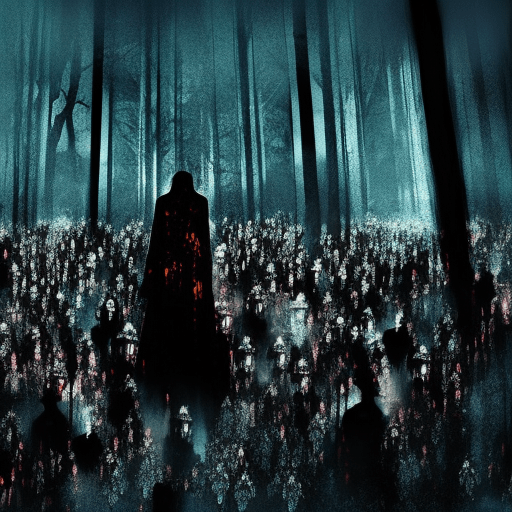One-line summary:
In “Interview with the Vampire,” a vampire named Louis recounts his life story to a young journalist, revealing the complexities of immortality and the struggle between good and evil.
The Journey into Immortality
“Interview with the Vampire” takes readers on a captivating journey into the world of vampires through the eyes of Louis, a 200-year-old vampire who tells his story to a young journalist named Daniel. The narrative begins in 18th-century Louisiana, where Louis, grieving the loss of his wife and child, encounters the enigmatic vampire Lestat. Lestat offers Louis the chance to become immortal, forever changing his life and plunging him into a dark and complex existence.
As Louis delves into the world of vampires, he grapples with the moral implications of his newfound immortality. He struggles with his insatiable thirst for blood and the guilt that accompanies it. Through Louis’ introspective narration, readers are invited to question the nature of good and evil, the meaning of life, and the consequences of immortality.
A Complex Relationship
Central to the story is the complex relationship between Louis and Lestat. Lestat serves as Louis’ mentor and guide into the vampire world, but their differing moral compasses create tension between them. While Lestat embraces his vampiric nature and revels in the power it brings, Louis grapples with his conscience and seeks to find meaning and purpose in his eternal existence.
Their relationship becomes even more complicated when they turn a five-year-old girl named Claudia into a vampire. Claudia, trapped forever in the body of a child, becomes a catalyst for conflict between Louis and Lestat. As Claudia grows older in appearance but remains trapped in her childlike mind, she yearns for companionship and a sense of normalcy that her vampiric existence denies her.
The Eternal Struggle
Throughout the novel, the eternal struggle between vampires and humans is explored. Louis, tormented by his conscience, questions the morality of his actions and the nature of his existence. He grapples with the idea that vampires are inherently evil creatures, while also acknowledging their capacity for love and compassion.
As Louis and Claudia travel through time, encountering other vampires and immersing themselves in various societies, they witness the depths of human depravity and the darkness that resides within both mortals and immortals. The novel raises thought-provoking questions about the nature of humanity and the choices we make when faced with immortality.
- Immortality comes with a heavy price, as vampires must grapple with their insatiable thirst for blood and the moral implications of their actions.
- The relationship between mentor and protégé can be fraught with tension and conflicting moral values.
- The struggle between good and evil is not limited to vampires but is a universal theme that permeates the human experience.
“Evil is a point of view. We are immortal. And what we have before us are the rich feasts that conscience cannot appreciate and mortal men cannot know without regret. God kills, and so shall we; indiscriminately He takes the richest and the poorest, and so shall we; for no creatures under God are as we are, none so like Him as ourselves, dark angels not confined to the limits of hell but wandering His earth and all its kingdoms.”
In conclusion, “Interview with the Vampire” is a mesmerizing exploration of immortality, morality, and the eternal struggle between good and evil. Through Louis’ introspective narration, readers are invited to question their own beliefs and ponder the complexities of the human condition.












